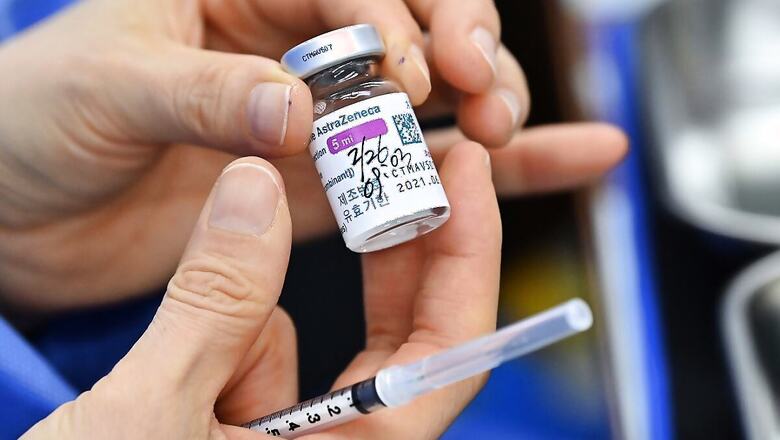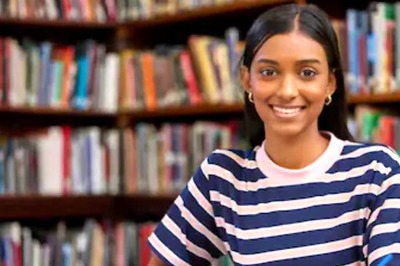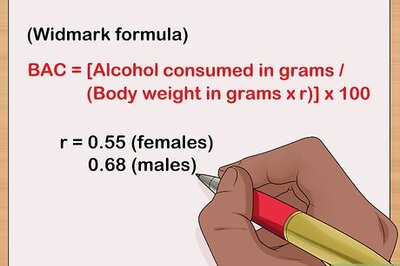
views
The Central government said vaccinating people against coronavirus based on professions will be discriminatory and not in national interest. The government was responding in the Supreme Court to a notice based on a public interest litigation (PIL) that said members of the legal fraternity, including judges and lawyers, should be prioritised in the inoculation drive.
The Centre said it may not be desirable to create a separate class of judges, lawyers and court staff below the age of 45 for administering the vaccine on priority basis. It said the vaccine, which is already being produced beyond the manpower and infrastructural capacity, is also being exported in view of the global pandemic.
In an affidavit, the government said, “It is not in the national interest to prioritise vaccination based on profession. That would amount to discrimination.” The petition had wanted judges, judicial employees, lawyers, and members of legal fraternity to be vaccinated on a priority basis.
A bench of Chief Justice Bobde and Justices AS Bopanna and V Ramasubramanian said that it would consider the plea, seeking inclusion of judges, judicial staff and lawyers in the priority category for the COVID-19 vaccine, on March 18. During the hearing, Solicitor General Tushar Mehta, appearing for the Centre, said the government reply has been filed. Senior advocates Harish Salve, appearing for Serum Institute of India, and Mukul Rohatgi, representing Bharat Biotech, said that different high courts are seeking data as how many vaccines are being produced and when will it be given to all. Rohatgi said this was a very important matter and they have filed a petition seeking transfer of all cases before the high courts to the top court.
The bench then said it will take up the transfer petition along with the PIL seeking fixing of priority of judges, lawyers and court staff for COVID-19 vaccine on March 18. Salve said the Delhi High Court and the Bombay High Court are hearing different petitions and seeking data from them. Rohatgi said the Delhi High Court is asking how much vaccine will be produced and who will it be given to. “Please see that it’s a larger issue and needs to be decided once and for all by your lordship,” Salve said, as the bench adjourned the matter for further hearing on March 18.
The Centre in its affidavit said, “As there are several other trade, business or profession who directly deal with the health, help and assist a common-man to provide his day-to-day requirements and are working in a small space with a large number. Thus, it may not be appropriate to discriminate them as against a separate class of lawyers as both are doing their respective duties towards the citizens under similar circumstances.”
The government said that from the facts it is clear that the classification of citizens is based upon most rational and non-arbitrary criteria and thus any specific classification either based upon the nature of trade, profession or otherwise is neither possible nor advisable. It is submitted that the fraternity of lawyers are requesting for being classified as frontline workers. Though the government has tremendous respect for the profession and the discharge of duties by these professionals for and on behalf of citizens of India, those lawyers and other associated staff who are either above 60 years or between the age group of 45 to 59 years and are suffering from very long and almost exhaustive list of co-morbidities would, in any case, be covered by the vaccine drive, it said.
The government said that analyses of COVID-19 deaths in the country reveals that 54 percent of all deaths occurred amongst those above 60 years of age, where those in 50-59 years of age accounted for 24 per cent. With regard to exporting of vaccines, it said once an epidemic takes the form of pandemic, its management has to be done keeping the entire globe as unit and in most circumstances it is not possible to take either state-specific or country specific approach.
Hence, export of COVID-19 vaccine which facilitated global action to vaccination is important to simultaneously protect the high-risk population in all the countries of the world, thereby breaking the chain of transmission and minimising chances of import of COVID-19 cases from foreign countries as well as neighbouring countries to India, it said. The government said that low/middle income countries as well as nations with limited access to pharmaceutical technologies are at debilitating disadvantages in dealing with pandemic and it has allowed only limited export of vaccines while according highest priority to domestic needs.
“Under the circumstances, the produced vaccine which is beyond the manpower and infrastructural facilities available, is exported..,” it said. The affidavit further said that the vaccination is the topmost priority of the government and all efforts being made to achieve an objective of 100 percent vaccination in the shortest time possible keeping the available resources in mind and availability of vaccine doses.
As on March 5, up to 5.13 crore doses of vaccination had been provided to states and Union Territories, the Centre said on Monday. “Vaccination policy is the domain of the executive. In the interest of the nation, court may not interfere. In view of the limited manufacturing of vaccines, there is a need for prioritisation of beneficiaries and priority given as per WHO guidelines,” it added.
(With PTI inputs)
Read all the Latest News, Breaking News and Coronavirus News here
















Comments
0 comment